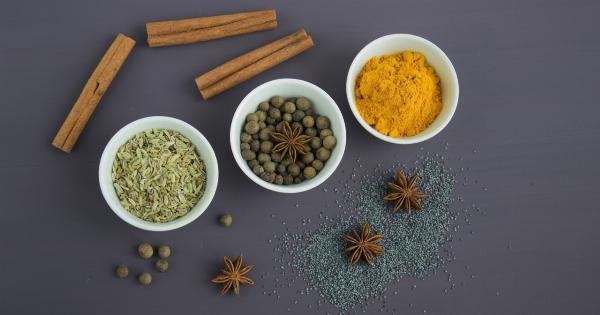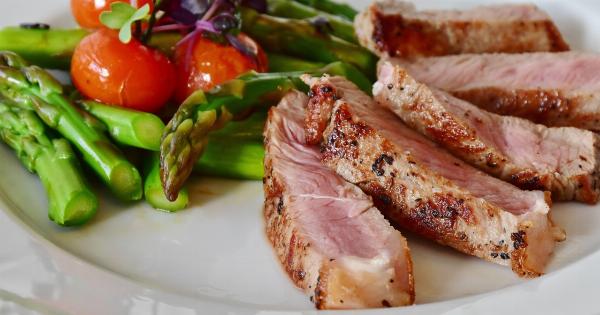Protein is an essential macronutrient that plays a crucial role in the growth, repair, and maintenance of tissues in our body. While most people associate protein with meat, there is a wide variety of other protein-rich foods that are often overlooked.
In this article, we will explore some surprising sources of protein that you may not have known were healthy.
1. Quinoa
Quinoa is a gluten-free grain that is commonly referred to as a “superfood” due to its high nutrient content. It’s not only a great source of protein, but it also contains all nine essential amino acids, making it a complete protein.
Just one cup of cooked quinoa provides approximately 8 grams of protein. Additionally, quinoa is rich in fiber, antioxidants, and minerals such as magnesium and phosphorus.
2. Greek Yogurt
Greek yogurt is a popular breakfast and snack option that is not only delicious but also packed with protein. It contains almost double the amount of protein found in regular yogurt.
With approximately 17 grams of protein per 6-ounce serving, Greek yogurt is an excellent choice for those looking to increase their protein intake. Additionally, it is a good source of calcium and probiotics, which promote a healthy gut.
3. Lentils
Lentils are a type of legume that are often overlooked as a protein source. However, they are a rich source of plant-based protein, with approximately 18 grams of protein per cooked cup.
Lentils are also high in fiber, iron, and folate, making them a nutritious addition to your diet. They are versatile and can be incorporated into various dishes such as soups, salads, and stews.
4. Cottage Cheese
Cottage cheese is a type of cheese that is low in fat and calories but high in protein. It is made by curdling milk and draining off the whey, creating a creamy and curdy texture.
With approximately 14 grams of protein per half-cup serving, cottage cheese provides a substantial amount of protein while being relatively low in calories. It can be enjoyed on its own or used as a topping for salads, fruits, or whole-grain crackers.
5. Hemp Seeds
Hemp seeds are tiny powerhouses of nutrition that are often overlooked. They are a complete protein source, meaning they provide all nine essential amino acids required by the body.
Just three tablespoons of hemp seeds contain approximately 10 grams of protein. In addition to protein, they are also rich in omega-3 fatty acids, fiber, and various vitamins and minerals. Hemp seeds can be sprinkled onto salads, smoothies, or yogurt for an added protein boost.
6. Edamame
Edamame is a popular snack in Asian cuisine that is made from young soybeans. It is not only delicious but also rich in protein. Half a cup of edamame contains approximately 11 grams of protein.
It is also a good source of fiber, vitamins, and minerals such as folate, vitamin K, and manganese. Edamame can be enjoyed steamed, boiled, or added to stir-fries and salads.
7. Chia Seeds
Chia seeds have gained popularity in recent years due to their health benefits and versatility. They are an excellent source of plant-based protein, with approximately 5 grams of protein per ounce.
Chia seeds are also high in fiber, omega-3 fatty acids, and various micronutrients like calcium and magnesium. They can be used to make puddings, added to smoothies, or sprinkled onto cereal or yogurt for a protein-packed boost.
8. Seitan
Seitan, also known as wheat meat or wheat gluten, is a popular meat substitute in vegetarian and vegan diets. Despite its meat-like texture, seitan is made from gluten, the main protein component in wheat.
It is a concentrated source of protein, with approximately 25 grams of protein per 3.5-ounce serving. Seitan is also low in fat and cholesterol, making it a healthier alternative to meat for protein needs.
9. Spirulina
Spirulina is a type of blue-green algae that is often consumed as a dietary supplement due to its high protein content. It is composed of approximately 60-70% protein, making it one of the most protein-dense foods available.
Spirulina is also rich in essential amino acids, vitamins, and minerals. It can be consumed in powdered form by mixing it into smoothies, juices, or water.
10. Pumpkin Seeds
Pumpkin seeds, also known as pepitas, are not only a delicious snack but also a great source of protein. Just one ounce of pumpkin seeds contains approximately 7 grams of protein. They are also rich in healthy fats, fiber, and various antioxidants.
Pumpkin seeds can be enjoyed roasted as a snack, used as a topping for salads, or incorporated into baked goods.


























